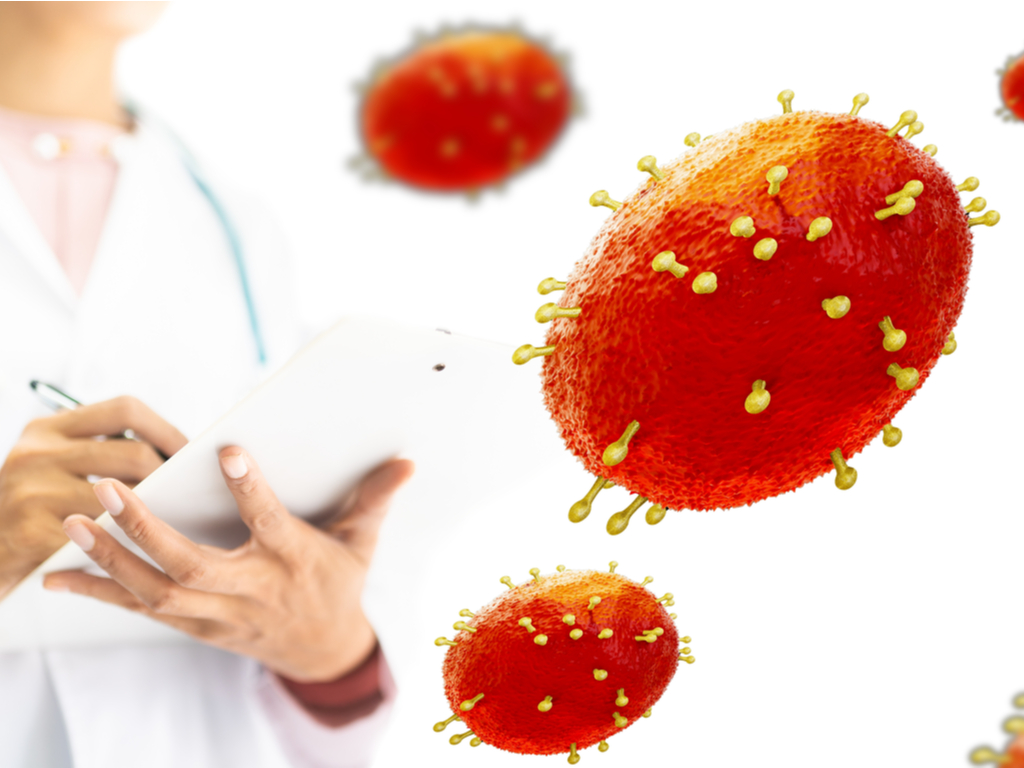An outbreak of Monkeypox in the UK has caused concern in both the general public and professionals in the last week, as cases of the virus continue to spread through community transmission, with 57 cases confirmed in the UK so far.
According to the US Centres for Disease Control (CDC), Monkeypox is a rare disease caused by infection with monkeypox virus. Monkeypox virus belongs to the Orthopoxvirus genus in the family Poxviridae. The Orthopoxvirus genus also includes variola virus, vaccinia virus, and cowpox virus.
Transmission of monkeypox virus occurs when a person comes into contact with the virus from an animal, human, or material contaminated with the virus.
The virus enters the body through broken skin (even if not visible), the respiratory tract, or the mucous membranes (eyes, nose, or mouth). Animal-to-human transmission may occur by bite or scratch, bush meat preparation, direct contact with bodily fluids or lesion material, or indirect contact with lesion material, such as through contaminated bedding.
Human-to-human transmission is thought to occur primarily through large respiratory droplets. Respiratory droplets generally cannot travel more than a few feet, so prolonged face-to-face contact is required. Other human-to-human methods of transmission include direct contact with bodily fluids or lesion material, and indirect contact with lesion material, such as through contaminated clothing or linens.
Contacts of monkeypox cases at high risk of having caught the infection should self-isolate for 21 days, the latest government guidance says. The UK Health Security Agency (UKHSA) guidance now recommends that people who have had “unprotected direct contact or high-risk environmental contact” should isolate for three weeks.
Monkeypox virus is not readily available for laboratories to test products against, however, the closely related Vaccinia virus is used in European testing as a surrogate for all enveloped viruses. As Monkeypox is an enveloped virus, any product that has passed an EN 14476 against Vaccinia virus can therefore be considered effective against Monkeypox virus.
Exceptional antimicrobial efficacy
Byotrol plc is pleased to confirm that the following Byotrol products have passed the European test standard EN 14476 against Vaccinia virus, which took place at Byotrol’s state-of-the-art laboratories at their Headquarters in Chester, UK. This confirms the following products are 99.99% effective against all enveloped viruses.
| Product | Contact time |
| Byotrol 4in1 Multi-Purpose Disinfectant Cleaner | 30 seconds in clean conditions
60 seconds in dirty conditions |
| ANIGENE HLD4v Disinfectant Cleaner | 30 seconds in clean conditions |
| CHEMGENE HLD4l Laboratory Surface Disinfectant | 30 seconds in clean conditions |
| CHEMGENE HLD4h Medical Surface Disinfectant | 30 seconds in clean conditions |
| REPRODIS HLD4i Instrument Disinfectant | 30 seconds in clean conditions |
| Byopet Advanced Stain & Odour Remover | 30 seconds in clean conditions
60 seconds in dirty conditions |
| Trionic D Cleaning & Disinfection Spray for Medical Devices | 60 seconds in clean conditions |
| INVIRTU Alcohol-free Hand Foam Sanitiser | 30 seconds |
Long-lasting protection
Additionally, a modified version of PAS 2424, which is the test method used to assess the residual antimicrobial activity of disinfectants, confirms that the following products are effective against all enveloped viruses for 24 hours;
| Product | Contact time |
| Byotrol 4in1 Multi-Purpose Disinfectant Cleaner | 5 minutes in dirty conditions |
| Byopet Advanced Stain & Odour Remover | 5 minutes in dirty conditions |
The results prove the residual efficacy of biocidal products, confirming that unlike traditional disinfectants such as bleach, these products continue to kill 99.9% of enveloped viruses for up to 24 hours after initial application, including Monkeypox virus.
This ongoing protection, even in frequently-touched areas, is welcome news for Byotrol’s customers in facilities management, hospitality, travel, and human healthcare, who may be affected by the outbreak.
For more information on Byotrol products, please click here or contact us.
